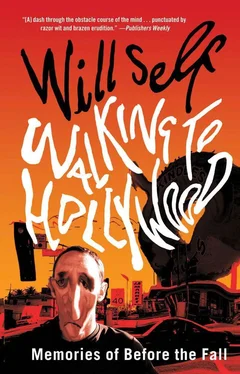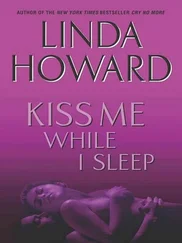Will Self - Walking to Hollywood
Здесь есть возможность читать онлайн «Will Self - Walking to Hollywood» весь текст электронной книги совершенно бесплатно (целиком полную версию без сокращений). В некоторых случаях можно слушать аудио, скачать через торрент в формате fb2 и присутствует краткое содержание. Год выпуска: 2011, Издательство: Grove/Atlantic, Inc., Жанр: Современная проза, на английском языке. Описание произведения, (предисловие) а так же отзывы посетителей доступны на портале библиотеки ЛибКат.
- Название:Walking to Hollywood
- Автор:
- Издательство:Grove/Atlantic, Inc.
- Жанр:
- Год:2011
- ISBN:нет данных
- Рейтинг книги:4 / 5. Голосов: 1
-
Избранное:Добавить в избранное
- Отзывы:
-
Ваша оценка:
- 80
- 1
- 2
- 3
- 4
- 5
Walking to Hollywood: краткое содержание, описание и аннотация
Предлагаем к чтению аннотацию, описание, краткое содержание или предисловие (зависит от того, что написал сам автор книги «Walking to Hollywood»). Если вы не нашли необходимую информацию о книге — напишите в комментариях, мы постараемся отыскать её.
Walking to Hollywood — читать онлайн бесплатно полную книгу (весь текст) целиком
Ниже представлен текст книги, разбитый по страницам. Система сохранения места последней прочитанной страницы, позволяет с удобством читать онлайн бесплатно книгу «Walking to Hollywood», без необходимости каждый раз заново искать на чём Вы остановились. Поставьте закладку, и сможете в любой момент перейти на страницу, на которой закончили чтение.
Интервал:
Закладка:
8. The Happy Detective
A man walks these streets alone; or, more usually, he drives. He’s not an especially good man — nor is he an evil one. He understands, in the immortal words of multimillionaire Harlan Potter, that ‘A newspaper is a business out to make money through advertising revenue. That is predicated on its circulation and you know what the circulation depends on.’ You — you know that a headline in the LA Times announcing that a US airstrike has killed eleven Pakistani infantrymen is bound to make you scrabble for change, lift the rubbery lid, smell the refried human beings.
A man walks these streets alone — why, hasn’t he got a car? Has he, like the failing screenwriter played by William Holden in Sunset Boulevard , had it repossessed? ‘You’re cutting my legs off!’ Yes, I remembered now: that was what Holden-as-Gillis howled despairingly as the tow truck jounced away. No, our man walks out of choice, and walks because only on foot can he engage in the sciamachy essential to his trade: fencing with the shadows of hat brims, gun muzzles and arms flung across brickwork by the beams of the Kliegs.
A man walks these streets alone: attuned to the tyre slap and engine howl, he is content in his solitude. If a Predator drone were to come dallying overhead, dipping into the canyons, then rising up to skim the apartment blocks, he would not flinch — for he is the happy detective. The happy detective knows no angst, for he has made peace with this moment and for all eternity; he remains sublimely unaffected by the thinness of his characterization while more rounded characters bemoan their stereotypy.
The happy detective accepts that when he turns up, so do the corpses: sluttish young women, their faces beaten to bloody pulp with brass statuettes; venal old men, the third eye just below their hairlines weeping blood; an Infiniti full of gang members riddled with bullet holes. *If you ask him — and believe me, I have — whether it might be better for everyone if he stayed at home, played with his kid, bickered with his wife, he’ll look at you with his doggedly honest brown eyes, suck doggily on his brown moustache, hem a little, haw a tad, before replying in accents as flat as his Midwestern home state, ‘No, I don’t think that. I guess… I guess I figure it doesn’t make any difference. I mean, it could be that I’m, like, the catalyst for some of these serial killings, but with an isolated homicide there’s no way I could be causing them before arriving on the scene. Lissen, what I believe is that if people are gonna get killed they’re gonna get killed.’
In a lesser man such an attitude would seem sociopathic; in a greater one foudroyant ; but the happy detective is of the middling sort, the sort who come to LA either because they’ve made some money and want to spend it, or because they want to exhaust some spiritual capital with breatharians, sucking up prana or checking out chakra . Not that Mac Guffin is a slacker; he works full time on the LA Times editing the culture section, and whatever time he has left over he dedicates to his detection. He doesn’t do divorce, obviously, but he’ll handle missing persons, straying dogs, industrial espionage — the cases that require legwork. And if he gets tangled up in loops of wire with razor-sharp barbs, then so much the better.
‘I’m at peace with myself,’ he says. ‘I’ve found my niche. When I was a young man I wasn’t exactly searching so much as yearning for something I couldn’t even identify. Nowadays it’s different: I’ll be crunching over broken glass down a back alley out in Alhambra, I’ll see the body slumped over the wheel of a BMW, and I’ll breathe deeply of the cordite and the blood and the urine, and I’ll think to myself—’
‘It’s a wonderful world?’
‘Yeah, kind of.’
I hit the gilded boulevard moving purposefully. I’d arranged to have dinner with the happy detective in Culver City; it was a short drive from Venice Beach where he lived, but a ten-mile walk for me from Hollywood. I’d have to walk back to Hollywood the following day after my meet with Michael Lynton at Sony in Culver City; still, it was inevitable that on a circumambulation such as mine, which aimed to mix business, pleasure, therapy and the solution of a major cultural murder, there would be certain… longueurs. It helped to think of myself as a one-man Bennet sisters, clopping through a prelapsarian Hertfordshire — its elms, beeches and lime avenues superimposed on the concrete chicane of Sunset, in the same way that a 120-foot-high Jennifer Aniston was plastered across the façade of the Hyatt — and naturally, if when I arrived at Netherfield Park I had so much as a sniffle I would be compelled to put up there for weeks, wrestling with marriage proposals and the foxed endpapers of my family bible.
Along the Strip the Jeffs beamed down in front of me looking utilitarian in their baseball caps and denim shirts. Sound Jeff taped the mike to my chest while I looked away to the tattered copra that had been wind-whittled from the palms, a torn Detour candy bar wrapper, a Häagen-Dazs coffee and almond crunch box, a roasted peanut crunch wrapper and the paper napkin that had been used to wipe the eating-disordered mouth before being discarded in the gutter with all the rest. It all spoke to me — and I spoke of it — as evidence of an uncertain narrative trajectory. It was all very well suspending disbelief in the road movie of LA, but sooner or later you had to question where it might be taking you.
No one had expressed this better than L. Ron, whose Association for Better Living and Education (ABLE) I had passed shortly after leaving the Roosevelt. His sometime friend, colleague and early champion of Dianetics, A. E. Van Vogt, said of Hubbard: ‘(He) wrote about a million words a year… I have seen typists working at that speed, but never a writer.’ No wonder he could maintain such resolute narrative headway, his plots moving forward like the starship Hound of Heaven , which, crossing the galaxy at the speed of light, exiles its crew by the passage of time, as back on earth whole generations and societies vanish for ever.
In the introduction to his final and most monumental exercise in ‘pure’ science fiction, Battlefield Earth: A Saga of the Year 3000 , L. Ron reprised his own career as a genre typist, relating how he had been brought in by the publishers of John Campbell’s Astounding Stories to inject a little humanity into these tales of futuristic hardware, because ‘[I] could write about real people.’
Well, I could write about real people just as well — real people like my old buddy Morgan Freeman, who, together with smouldering, stick-thin Angelina Jolie (rub up against her and you might catch fire!), was starring in Wanted , a thriller about a secret Illuminati of assassins, the billboard for which stood proud of the Viper Room. On our walk out to Uxbridge, Morgan had told me enough about the movie for me to feel that I’d seen it already: ‘There’s a neat CGI effect,’ he said, ‘that makes the air appear like kinda limpid water — it happens whenever we’re fighting each other, and then if we fire a gun we can warp the trajectory of the bullet.’
The air that morning, 12 June 2008, seemed like limpid water, and Camera Jeff’s lens a muzzle from which a bullet curled — was it the brutal, Powerade-fuelled congress in the cabana at the Roosevelt that made me feel as I had on those wet Tuesdays, when, emerging from the coruscation of the Californian highway into the familiar artificial twilight of a London night, I discovered that it wasn’t familiar any more, but strangely exciting — charged?
Surely it was this feeling, rather than the movies themselves, that so entranced career film critics? Because, let’s face it, there are only so many times any sane person can expose themselves to such hokum before they begin soundlessly lip-synching to the giant mouths on the screen, or running a chipped nail over the dead skin of the lips transfixed in the seat beside them. Bad rhyming quitting the Classic, leaving the Everyman, hitting the gilded boulevard, accompanied by some torpid fiddling about on the G string of a cello that suggests a troubled sexual repletion… The alternative — that critics retained the childlike ability to identify so closely with the sassily imperturbable Fox (Jolie) that they left their own foetuses reposing in red plush, to float up the tractor beam then dive through the screen and penetrate her drum-tight belly — was too awful for me to contemplate. It implied a relationship between critic and star analogous to that of Thetans and those genetic entities they had entered, millions of years in the past, long before they crawled from the primordial slime and became critics in their own right.
Читать дальшеИнтервал:
Закладка:
Похожие книги на «Walking to Hollywood»
Представляем Вашему вниманию похожие книги на «Walking to Hollywood» списком для выбора. Мы отобрали схожую по названию и смыслу литературу в надежде предоставить читателям больше вариантов отыскать новые, интересные, ещё непрочитанные произведения.
Обсуждение, отзывы о книге «Walking to Hollywood» и просто собственные мнения читателей. Оставьте ваши комментарии, напишите, что Вы думаете о произведении, его смысле или главных героях. Укажите что конкретно понравилось, а что нет, и почему Вы так считаете.












